Eco-Challenge Fiji 08 - A Grizzled, Mountain Woman Caitlin Thorn with an 18-Inch Beard
Eco-Challenge Fiji:
World’s Toughest Race
Thursday, September 12th - Friday, September 13th
Spoilers: None
In the next section of the race, teams were to construct two bilibili rafts from bamboo and paddle them down the river. A bilibili is a raft made of lashed-together bamboo. It is steered using a long pole, that is pushed down to the river bed. Fijians have been making and using bilibilis for centuries—they are a regular means of transportation from one riverside town to the next, or out to the ocean.
Joshua asked two locals to take the team to the best pile of bamboo. They did and immediately started constructing the rafts with the team. The guys helped out while Caitlin gave a Fijian kid some M&Ms.
With their raft construction guided by the experts, Jesse paid the Fijians for their help and Team US Military set off down the river. At first they were paddling them standing up, but Caitlin soon found that they could get more surface area of the bamboo paddle in the water sitting down. Joshua spent about thirty minutes trying to construct paddles for the ends of the bamboo sticks. Caitlin tried to tell him that it would not work and not to spend time doing that, but Joshua was stubborn. In the end, he gave up and the team was left trying to paddle bamboo rafts with bamboo sticks—a very slow process.
Jesse and Caitlin were on one bamboo raft and Joshua and Spangler on the other. Jesse and Caitlin were so much faster than Joshua and Spangler that they decided to switch up the rafts to see if they could get the bilibilis going at the same speed. Jesse switched with Joshua which was a little better, but not by much. After a little while they switched again—Caitlin switched with Spangler and it was decided that one raft was simply much slower than the other raft. Now that Jesse and Caitlin were on the slow raft, both rafts were now traveling at more or less the same speed.
It was determined that Caitlin was the bilibili MVP paddler after their three combinations proved out as much. As Caitlin spent most of the race trailing behind the guys on the biking and rock hopping sections, she made sure they were aware of her bilibili paddling prowess. After this, the running joke was about the adventure racing book Caitlin was writing as some sort of bearded mountain woman and expert outdoorsman, with Joshua adding a chapter after every time she questioned their navigation or tried to correct their paddling technique. Things got pretty silly. The boys found it quite humorous.
The running joke was about the adventure racing book Caitlin was writing as some sort of bearded mountain woman and expert outdoorsman, with Joshua adding a chapter after every time she questioned their navigation or tried to correct their paddling technique. Things got pretty silly. The boys found it quite humorous.
The bilibili proved to be a long, painful section. Progress was slow and Spangler kept falling asleep while paddling. As they paddled down the river Team US Military was greeted with, “Bula, Bula!" from either side the entire way. Whenever they passed under a bridge a crowd was gathered, cheering them on. Kids swimming in the river would swim after them. Women washing clothes in its waters would ask where the team was from and would cheer loudly when the team answered, “USA!” The team saw a seven year old swinging a machete on the side of the river. Two young boys around nine years of age were riding horses bareback alongside the bank. To the teammates, it was a fun and unique experience, and they saw many women on bilibilis gathering coconuts from the river as they paddled downriver. Despite the support from the locals, the bilibili leg seemed interminable—it ended up being a 10+ hour leg, and the teammates of Team US Military were elated to see the checkpoint when they got there after dark.
The team quickly deconstructed their rafts as per the rules and set out to quickly assemble their bikes for the next leg of the stage. They had not passed a single team on the bilibilis, but they held their position as no teams had passed them either. The team had gained over thirty-five places since their misfortune in the first fifteen minutes of the race, and were feeling pretty good about themselves now sitting in high 20s place-wise.
As they got the bike transition in a little village, a team was there just getting ready to leave. Caitlin filled and filtered the water while the men built the bikes. It was a fairly solid transition and the team, firing on all four cylinders, was ready to go in no time. Joshua took over the navigation and away they went. They were grateful to be on the bikes after so long on the river. They pushed the mountain biking section hard—lots of elevation gain and loss over most of the night. Towards the end of the bike, they caught the team that had left forty-five minutes in front of them at the last transition. It was Team Meridianoraid Spain, led by Antonio de la Rosa Suarez, who had just a month earlier paddled 2900 miles on a standup paddleboard from San Francisco to Honolulu to raise awareness for oceanic pollution. The last few hours of the bike, it started pouring rain and the team was looking forward to hot food and dry clothes at Camp 2.
After a very wet and cold night on the bike they blazed into Camp 2 at 0400. Hot soup and a dry camp was looking really good to them now. As they started searching for their camp among all the tarps and tents, they could not find their own. After a while, Joshua finally found a volunteer to point out where the camp was set up. The volunteer pointed to six bins covered by a sopping wet tarp on the ground with Kevin’s tent next to it.
Holy shit.
Kevin had not set up their camp yet. Joshua immediately went to Kevin’s tent. “Kevin, what’s going on!?" The response the racers heard from their TAC inside the tent was, “Shit.” Kevin sheepishly made his way out with some objectively lame excuses for not having camp set up. Team US Military had killed Stage 2 in less than twenty hours and Kevin had not anticipated their early arrival.
The racers departed camp the next morning on bikes, spirits still high--despite what had happened--and confident that Kevin would lay out the red carpet for them at Camp 3.
Spangler surveyed the scene and announced he was going into the shitter to study the maps. Joshua was too flabbergasted to take much action, his jaw pretty much still on the ground. Jesse immediately started getting the tarp set up to get out of the rain, and Caitlin helped him where she could. The team struggled in the rain and wind to eventually get the tarp up and then the tent, changed into dry clothes, and went to sleep while Joshua took over plotting their course on the maps for Stage 3.
Prior to coming into camp, the team had been debating whether to do a ninety minute turn or use a sleep card and do a 4.5 hour turn. With the camp debacle, this decision was made for them—they took a sleep card while Kevin finished getting camp set up and made some food. The racers departed camp the next morning on bikes, spirits still high--despite what had happened--and confident that Kevin would lay out the red carpet for them at Camp 3.
Caitlin Thorn is a guest blogger here. Caitlin Thorn is an accomplished endurance athlete, with numerous accolades as a distance runner, Olympic and half-Ironman distance triathlete, and adventure racer. Caitlin is a Track and Field Division I NCAA All-American, with numerous finishes in the half-marathon and marathon distances. She has been adventure racing for three years and has earned podium finishes at over 6 races and qualified for the 2019 USARA National Championship. Caitlin enjoys world travel and hiking, and when not pursuing outdoor adventure she serves as an active duty officer and engineer in the U.S. Air Force.
Caitlin can be followed via Facebook @caitlin.aub

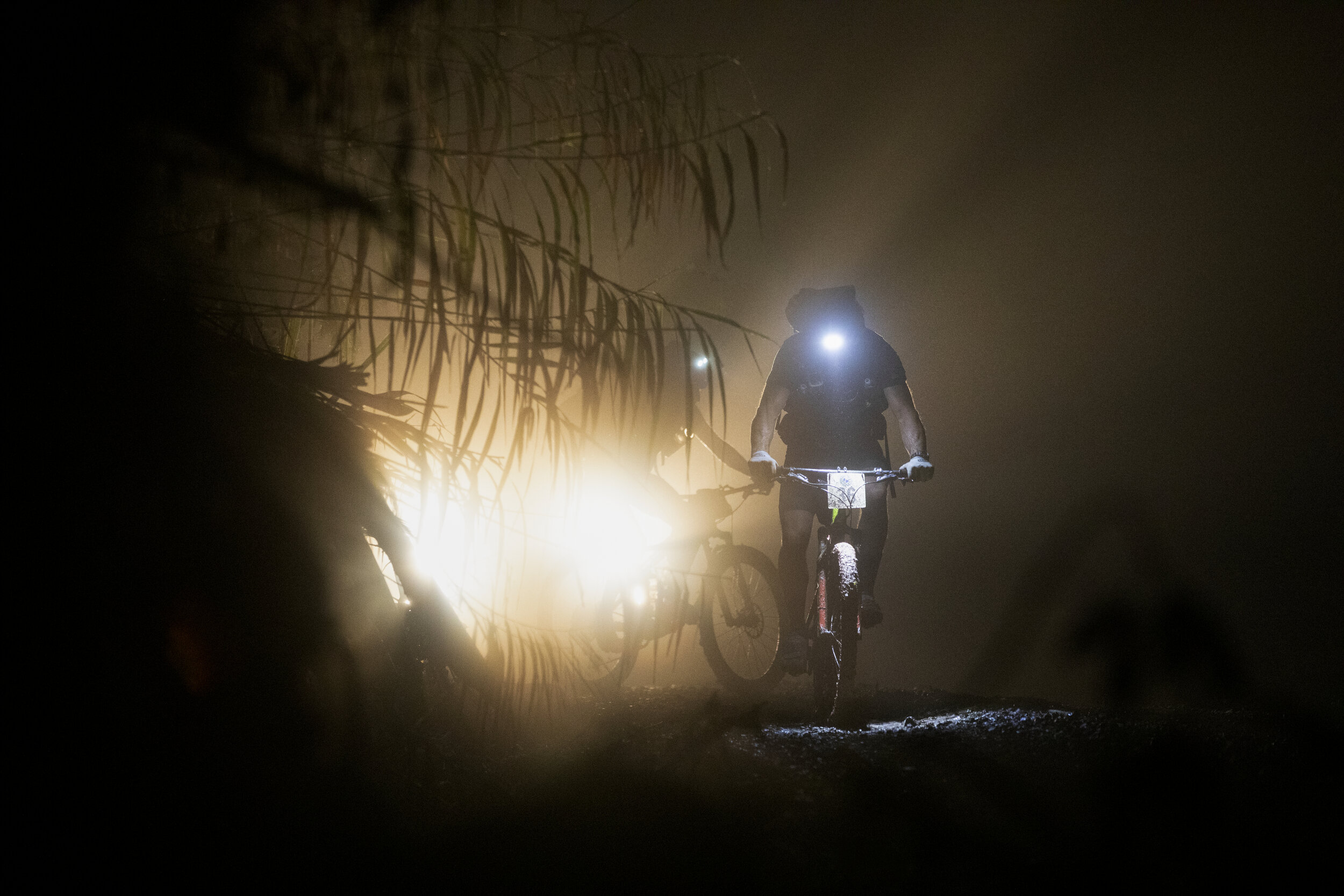









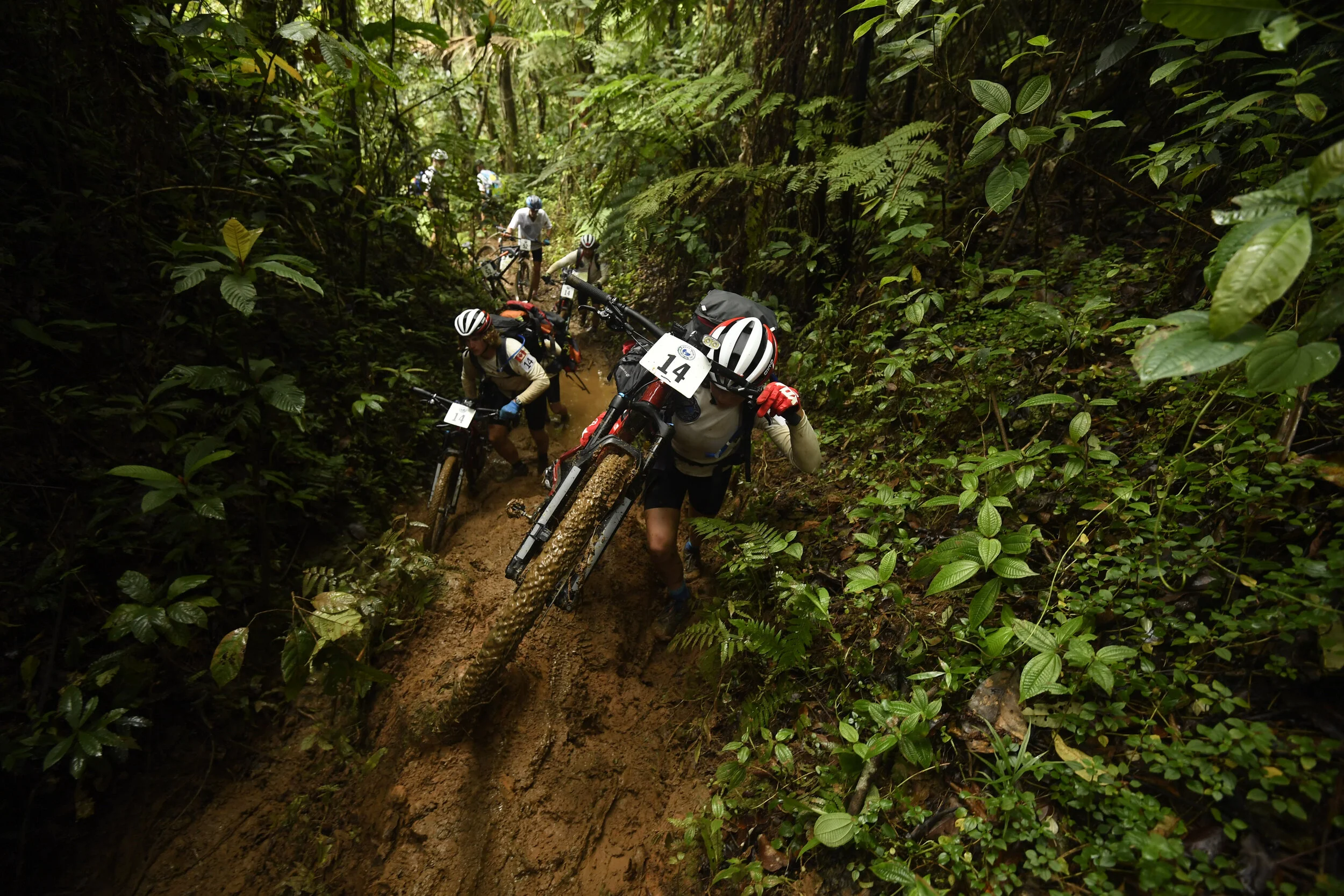



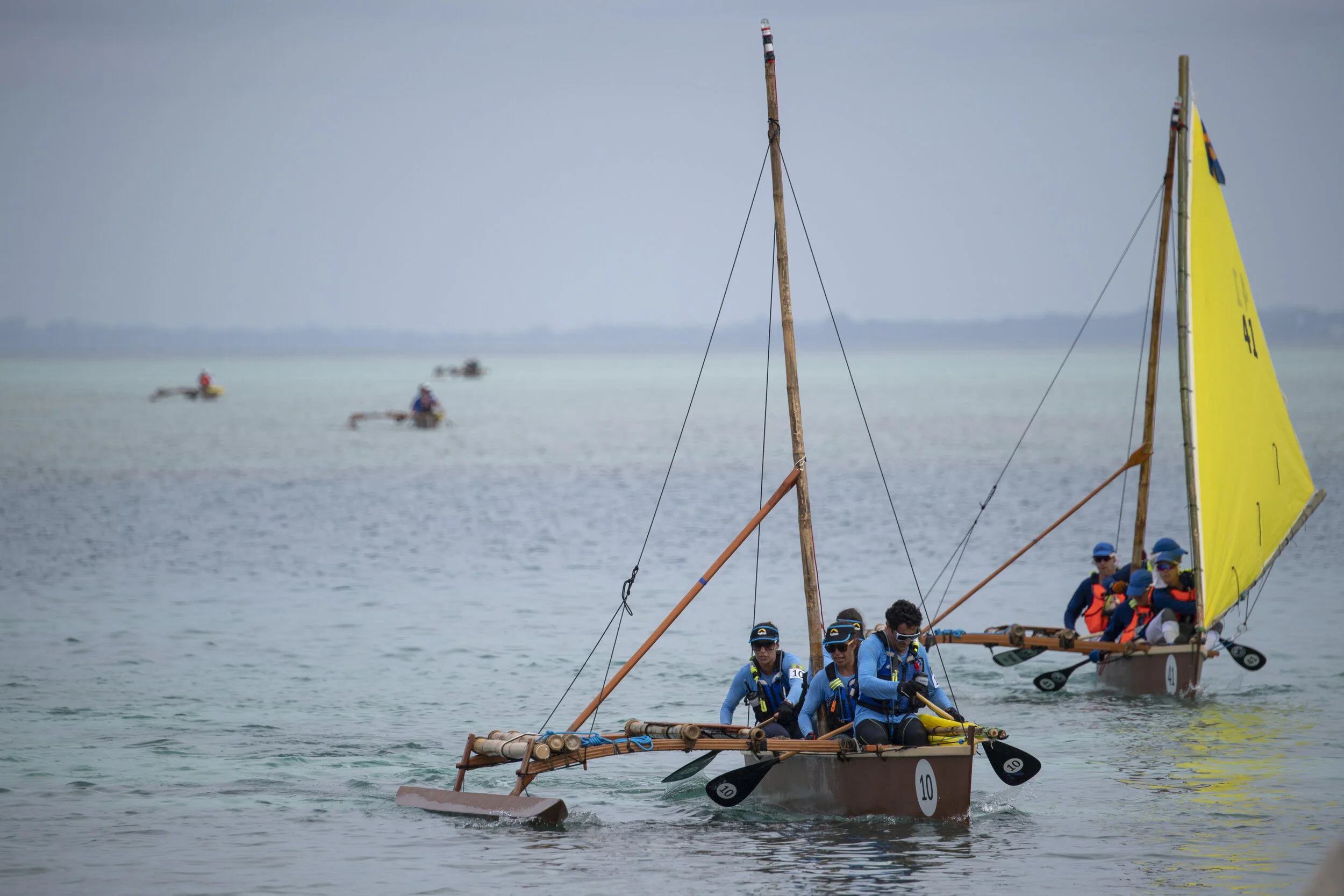
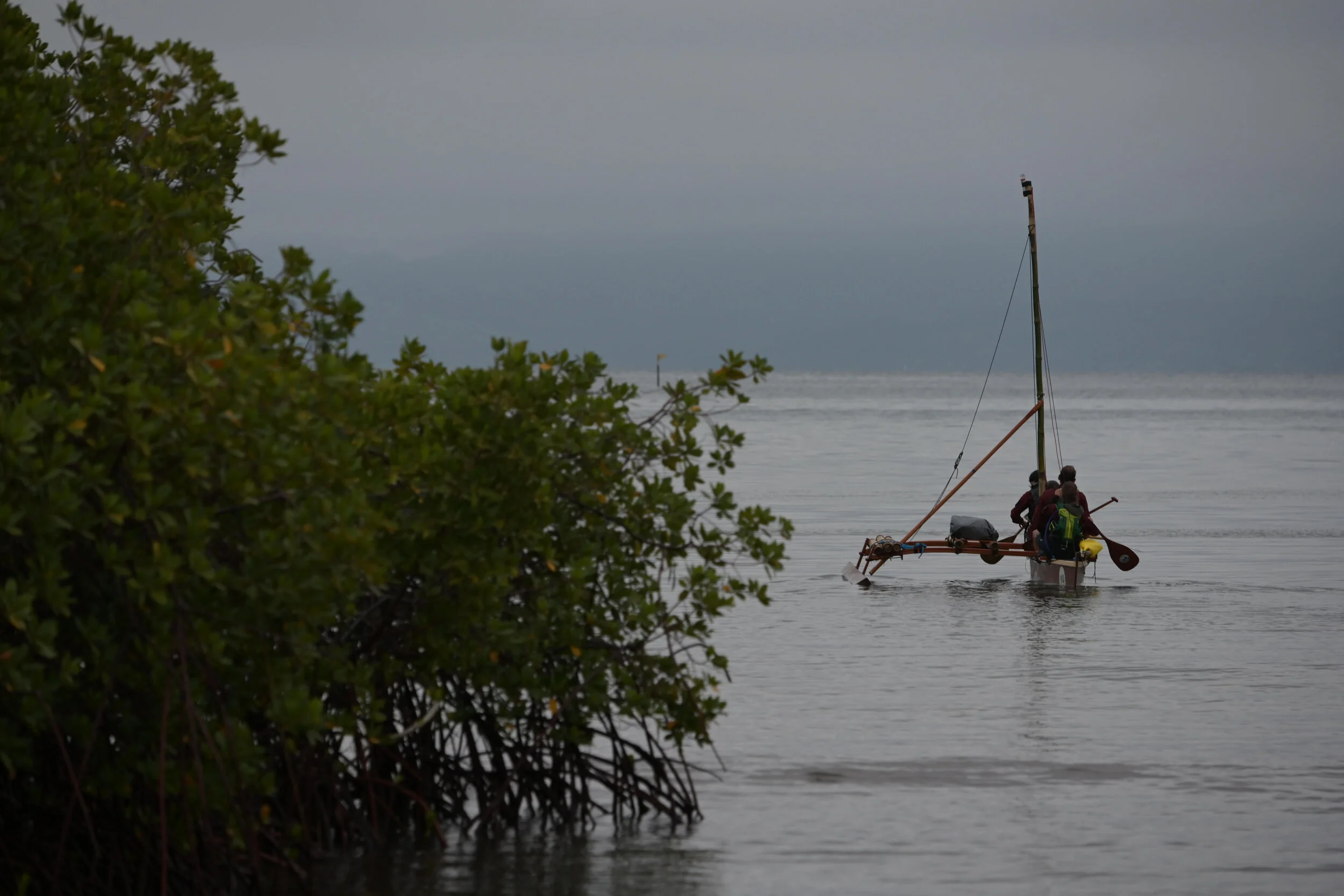
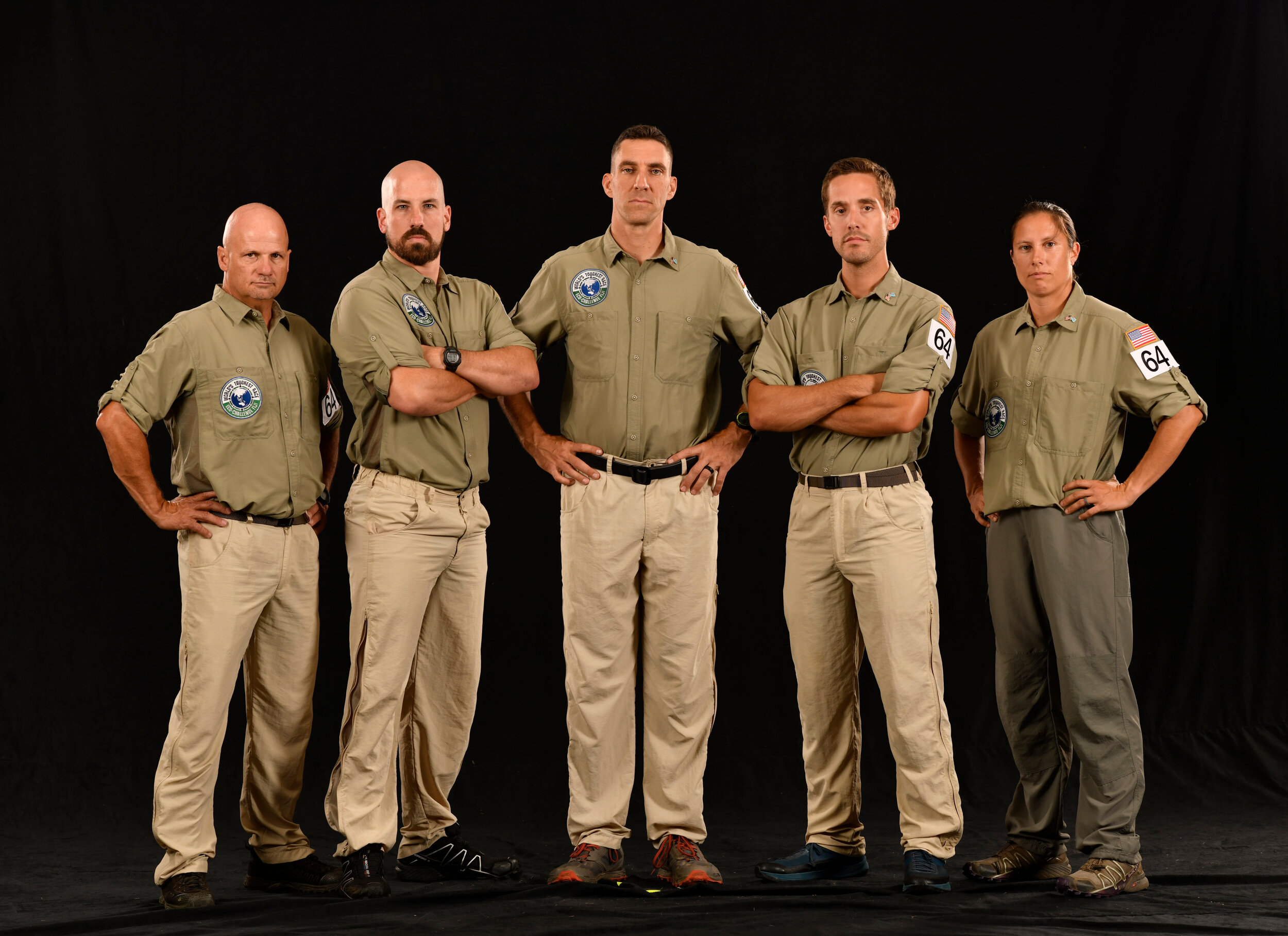

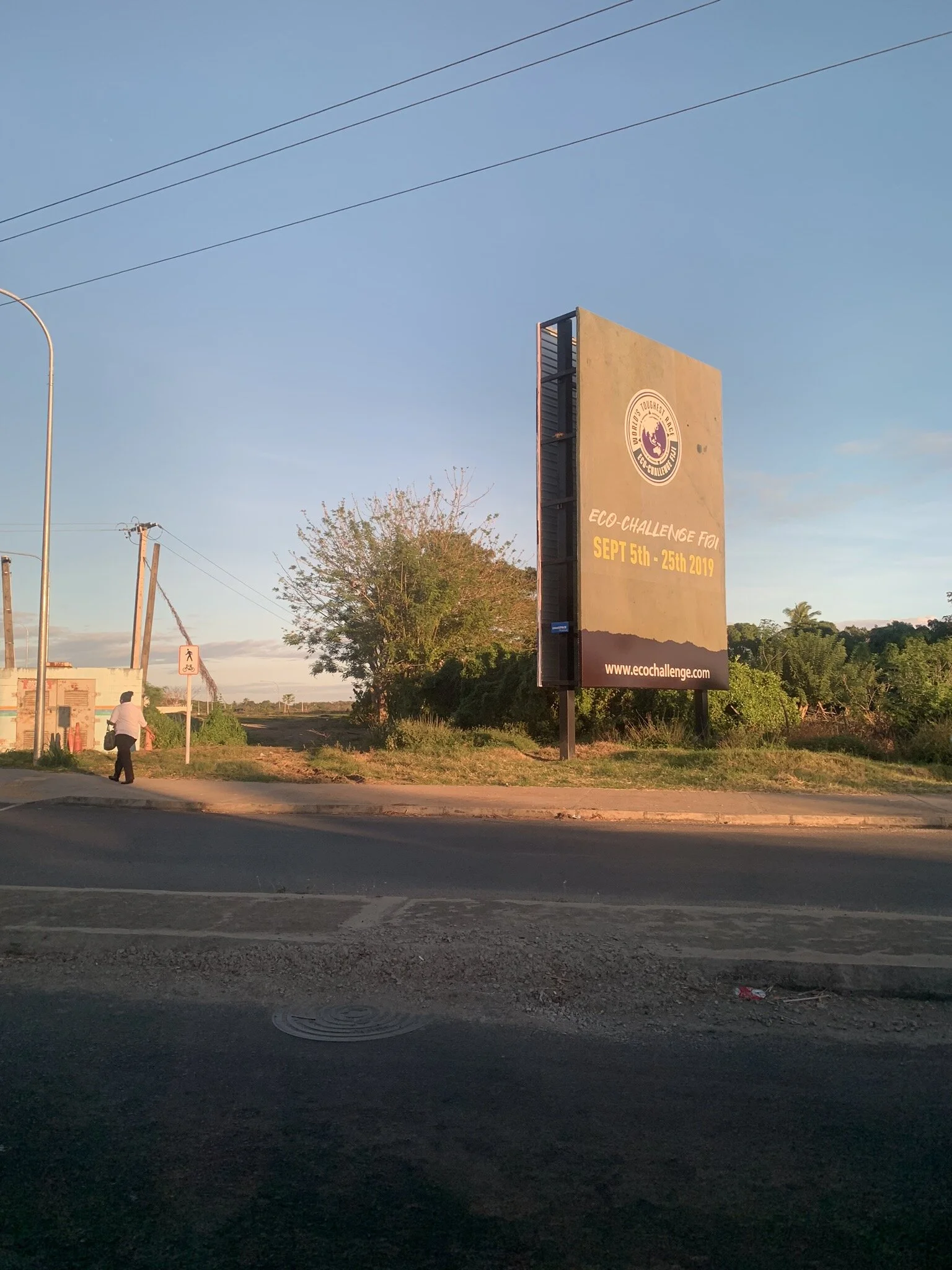
Eco-Challenge Fiji never promised to be an adventure race. Its claim was “The World’s Toughest Race”. Despite the lack of navigational challenges and jungle whacking (which was anticipated to be the hardest part of the race), Eco-Challenge Fiji was still the hardest race the members of Team US Military had ever done. The biking was tough, with incredible elevation gains and losses, and the weather added to the suck factor. This course tested the limits of racers’ mental capacity and their will to finish. Traveling across and along rocky rivers was tedious and broke some of the hardest people down. Continually slipping on rocks and banging up shins and feet tested the bounds of human fortitude and willpower.